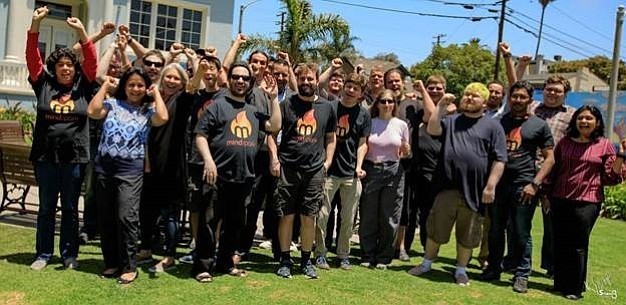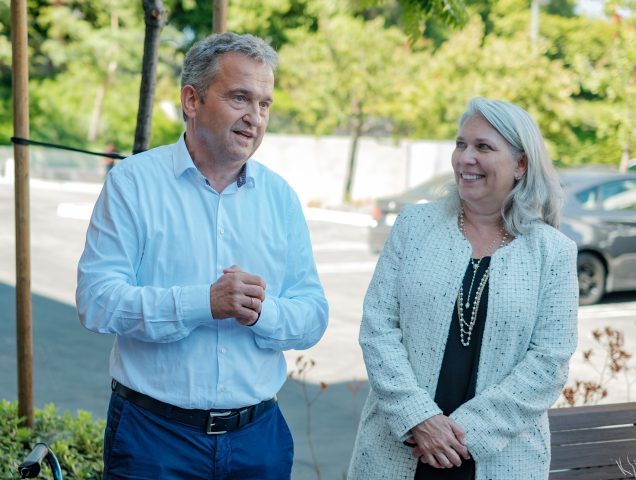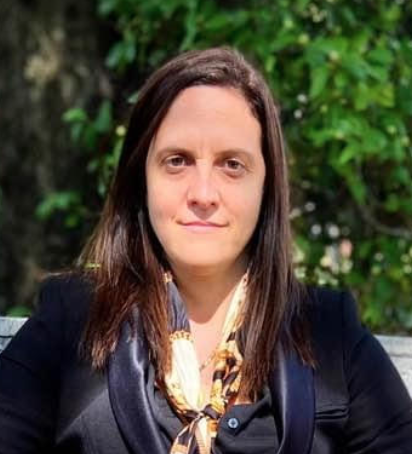Auticon is a multinational information and communication technology company founded in 2011 that exclusively employs analysts and technologists with autism spectrum disorder. In this series of interviews, we will talk to the current CEO, Kurt Schöffer, as well as the U.S. Managing Director, Rebecca Beam, the Principal, Gray Benoist, and Mindy Sterling, and her son, who is employed at Auticon.
Taken together, these individuals give us unique insight into the mission behind Auticon, the efficacy of their business model, the recent merger with U.S.-based firm, MindSpark, the experience of an Auticon employee, and the future of this social enterprise.

CEO Auticon, Kurt Schöffer
Nathalie: How did the founder of Auticon, Dirk Müller-Remus, decide to become the largest employer of people with Autism in the world?
Kurt Schöffer: It’s the same reason many other companies choose to take care of someone on the spectrum: he had a son. A son that happened to have autism. And he could see, from his son, what confrontations he had but also what strengths he had. Dirk dug deep, for over ten years with his wife, in order to find out in general, not only for his son, what would be needed in order to make those with autism spectrum disorder employable. What kind of things he would need to arrange so that the guys can find a perfect environment to do their job.
Nathalie: So, Kurt, as the CEO of Auticon, what are your visions and goals for this company?
Kurt Schöffer: We have two obvious targets. The most obvious one is that we want to create as many career opportunities for people on the spectrum as possible. The other one is that we want to change and help to change the perception of autism in society. We do that by sending our consultants to projects in a competitive environment of with customers like BMW or Siemens. Our customers learn that it’s not overly difficult to work with people on the spectrum.
Nathalie: People with autism bringing a lot of skills and gifts to the table, what would you say are their greatest collective talents?
Kurt Schöffer: Internally at Auticon, we call autism a different operating system. Because the guys are different. They think differently and they often come to totally different ways of solving problems. Over the past five years, we have found a thing that we call the USP [Unique Selling Proposition] of consulting services from autistic individuals.
The most important component is pattern recognition. The guys see patterns everywhere. It’s unbelievable.
The second component is they have a high quality standard. They see mistakes without needing to look for them. And they want to have things right.
The third component is something equally as important: the guys are brutally honest. If they see something that is not okay on their eyes, or that is not in order, they will let us know straight away. They are not political or biased about it.

Mindy Sterling and her son, Max (employee of Auticon, USA)
Nathalie Virem: What challenges did you have in your career due to autism and how did you overcome these?
Max: I have always motor skill issues as I always had a hard time writing but I have been able to overcome that through learning how to be an excellent typist, learning to be able to express myself and my emotions. Basically… ending up more high functioning.
Nathalie Virem: What made you want to choose Auticon USA as a company you wanted to work for?
Max: One of my best friends from the kindergarten is neighbors with the owner so we ended up meeting him at a party and he recommended me to join the company. And of course I completely respect their mission and respect everything they want to do here.
Nathalie Virem: Now Mindy, how do you think Auticon USA is making a positive difference to lives around the world?
Mindy Sterling (Max’s Mom): My son is a big part of everyone’s life and to watch him grow as a human being and to feel more confident…wow. It’s really difficult in the working world for kids with any kind of autistic spectrum disorder–because so many people are not educated on their needs, what they do well, or even how to celebrate them.
[Auticon] couldn’t be more perfect in this regard. Because these kids, and I know Max for sure, are so smart. They are so bright and capable. And they LOVE computers. This is something that they can do–something they can love doing.

Rebecca Beam (Managing Director) & Gray Benoist (Principal, Mindspark)
Nathalie Virem: Why do you believe neurodiversity is the next social movement?
Gray Benoist: Social movement or just inclusion in diversity? That’s the question.
The way we think about it as a corporation is with the mission for inclusion. Because the level of skills and capability of so many subsets of our population are underutilized and underserved. This is where our focus lies–on increasing the understanding of the disability across the board, and then subsequently the ability of firms to embrace it within a standard methodology in a corporate structure.
Nathalie Virem: What is MindSpark’s role within the Auticon portfolio?
Gray Benoist: The similarities of our companies are astounding. We have the exact same mission. We are both interested in an employee population that is underserved and underutilized. One that we both believe adds enormous value.
Since both firms see that the exact same way, MindSpark is the perfect platform for Auticon to fulfill the global aspect of their global mission. Our hope is to join forces, celebrate everything that’s possible, consolidate missions, and serve even more of this population–more rapidly.
Nathalie Virem: Tell me a little bit about the services that Auticon USA plans to provide in the market of today.
Rebecca Beam: Auticon USA will still provide outsourced software and the Quality Assurance (QA) services that MindSpark currently offers. Companies essentially outsource their software QA to our company and our analysts work in-house on monitoring.
The beauty of the convergence of the two models [Auticon and MindSpark] is now that we are going to be able to hire technologists who are on the autism spectrum and allow them to go work at the clients’ sites–from entertainment to financial services–as well.
That’s true inclusion.

